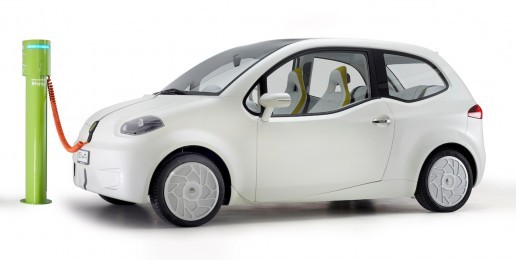
You may or may not have seen the television ad. It goes something like this. A middle-aged father is driving his daughter to school. I’d say the girl is about ten years old or so. Without warning, the stylish little pixie, in the cutest voice you’ve ever heard, puts an amazing request to her dad. The little darling tells her father, it probably would be better for her, if she could be dropped off a couple of blocks from the movie theater.
Now, in the real world, alarm bells would go off like the Fourth of July and New Year’s Eve combined, in the mind of any parent who received such a request. But the little girl quickly diffuses any growing angst in her mildly stunned father when she explains why the early departure would be in her best interest. “All the other parents are driving hybrids,” the little darling exclaims. “It just wouldn’t look like right if we showed up in this big gas-guzzler you are driving me to school in.” Well, she didn’t put it in those exact words, but that’s what was on her mind.
Contrary to the reaction of any normal parent, who probably would have told the girl to get someone else to drive her to school from now on, this daddy calmly and proudly tells the little darling that she is riding in a hybrid. The girl then says something like, “you never told me this” and the father ends the TV ad by saying, “I never thought I had to.”
The first time I saw this commercial, I was stunned. It struck me on so many negative levels, it is almost impossible to describe. But if you read my columns with any regularity, you will know I’m going to make an attempt at it anyway.
What arrogance, I thought. Of course, there was my reaction to the words of an obviously spoiled little girl who didn’t like the vehicle in which she was being driven to school, but the commercial hit me at a more visceral level. It was wonderful that this father was fortunate enough to be driving a brand new 2008 whatever. Yet this wasn’t good enough for a child’s fashion sense. Note, she wasn’t proclaiming her anxieties about the state of the environment, she was worried about what others would think because her father wasn’t trendy enough.
Suddenly, I understood what much of the environmental movement in America, and the world for that matter, is all about. The movement is designed to speak to the affluent and privileged in our society, playing on the guilt complex that drives much of the liberal philosophy today. Did the creators of the hybrid ad think about the single mother who is happy her car is moving and her tires aren’t too worn out to drive her kids to school safely? The ad was playing on one thing and one thing alone– collective guilt. And everyone who saw the commercial needed to buy this $50,000 vehicle to no longer feel guilty.
However, we shouldn’t be surprised at such snobby elitism coming from the Left. Even though the United States gets most of its oil from Canada and Mexico, we constantly hear about how our nation must be weaned off of foreign oil. This is a reasonable goal that most Americans would agree with. But the modus operandi regarding this change demonstrates how the Left is willing to use any means to reach a goal.
There are some political activists who would like to see gasoline prices go as high as possible. They believe such astronomical costs would help wean the country off of fossil fuels; in this case, gasoline. But these tree huggers are forgetting something, aren’t they? There are millions of people, including the poor and elderly, on fixed incomes, and gasoline prices at such a high rate would greatly impact their quality of life. Money used for items like medicine for them or their children would now have to be spent on gasoline that would take them to the doctor to get the prescriptions they can no longer afford.
Remember, with the Left, the ends justify the means. And though they will claim to be the people who truly care, their actions reflect something completely different.
In Africa, there are millions of people suffering from AIDS, living in thatched huts with dirt floors. They pray to God for their next meal and are thankful when they receive it. But, in some cases, more money is spent by industrialized countries on wild life preservation than on feeding and clothing the poor. Some might call it a form of paganism which actually assigns more importance and value to nature than to human beings.
The ad I talked about at the beginning of this column is born out of this philosophy. It plays upon something dark that lies within a culture which many believe does not appreciate the riches it has. The creators of the ad could care less about those who don’t have the 50 grand that would make them environmentally responsible drivers. The ad plays upon envy, pride, and a covetous nature that may lie deep within us all.
I believe in something called responsible environmentalism. This is a common sense view of how to take care of our precious planet. It is a mindset not dependent upon the creation of guilt in others, but based on what is best for mankind. If you look closely, you can see the threads of the hybrid ad running through much of the radical environmentalist movement. You can live in a $10 million mansion and assuage your guilt by buying carbon credits; or, if you’re a movie star, take part in a fundraising gala to save the whales, then drive away in your limo, sipping champagne and feeling good about yourself.
We do have a responsibility to protect and cherish the world God created for us. It is a task that should be undertaken with sensibility. Anything else looks shallow and is probably motivated by the wrong reasons.






















